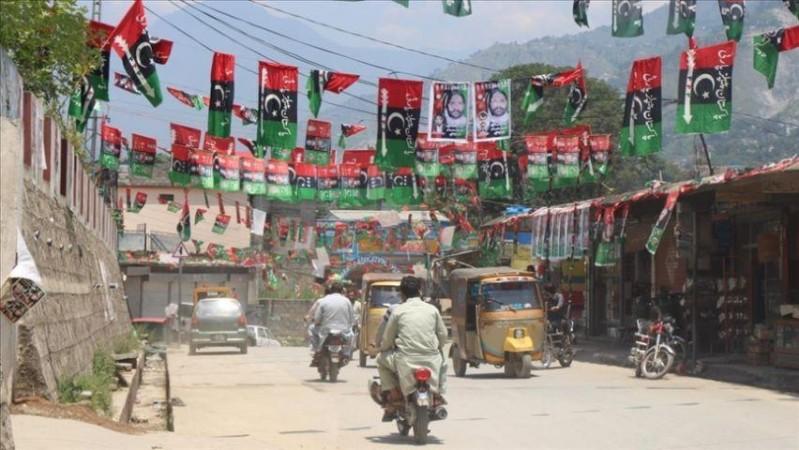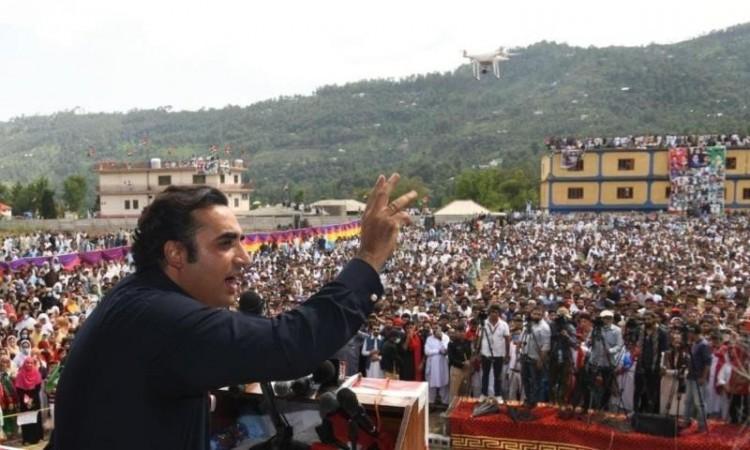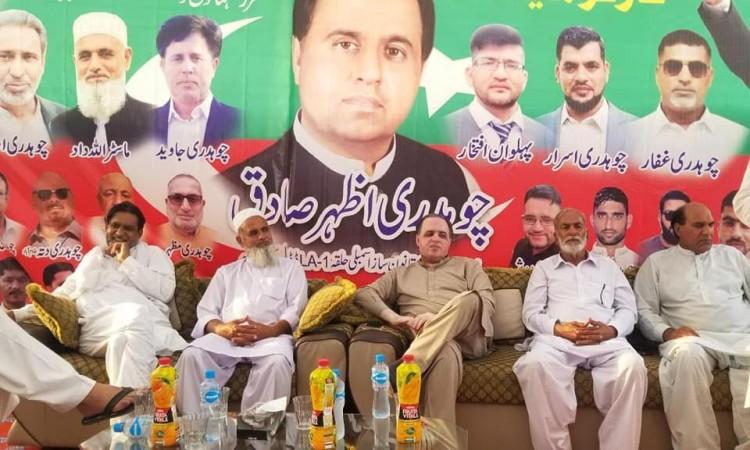Although Pakistan's mainstream political parties are desperately raking up anti-India sentiments to win elections in the Pakistan-occupied Jammu and Kashmir (PoJK), caste, ethnic loyalties are going to decide the fates of 701 candidates in the fray.
Elections for a total of 45 assembly constituencies, including 33 seats for residents of PoJK and 12 for "refugees" will be held on July 25.
From Prime Minister, Imran Khan to the opposition leaders Bilawal Bhutto and Maryam Nawaz are raking up issues like abrogation of Article 370 in Jammu and Kashmir but voters in the PoJK prefer castes, Biradaries over emotional issues.

As the campaign for elections has picked up, political parties of Pakistan are making every effort to rake up anti-India sentiments of voters to win elections on the 'emotional card'.
According to data shared by Pakistani authorities, 2.82 million voters will exercise their right to vote in PoJK, of which 1.59 million are male voters, while 1.297 million are female voters.

Caste, ethnicity plays a dominant role in elections
As per reports in Pakistani media, ethnicities, locally known as Biradaris, will be a deciding factor in the ongoing elections in PoJK. Loyalties to their Biradaris reign supreme in the minds of voters.
"Six major castes or Biradaris, Gujjar (Chaudhry), Sudhan, Rajput, Syed, Khawaja, and Awan have been dominating the political scene in the region. Political parties have distributed mandates among representatives of these castes depending on the concentration of their populations in the particular constituencies", reported The Express Tribune, one of Pakistan newspapers.
Quoting some voters, the newspaper reported that the priority of the majority of voters is candidates of their castes. People are not attached to emotive issues or have no emotional affiliation with any political parties.
Gujjars outnumbered other castes in the present assembly
Pakistani media reported that in the outgoing assembly, over a dozen lawmakers are Gujjar, the largest caste in PoJK.
"These politicians know the power of their respective Biradaris. Therefore, they don't hesitate to join the party, which has brighter chances of coming into power," The Express Tribune reported while quoting Sajjad Mir, a Muzaffarabad-based political analyst.
Citing the example of Chaudhry Shehzad, who served as a minister in the incumbent government of the Pakistan Muslim League (Nawaz) headed by three-time Prime Minister Nawaz Sharif until last month, Mir said he left the party and within two hours got the ticket of Imran Khan's PTI.
"He knows his Biradari will support him in any case," he said.
Quoting another Muzaffarabad-based political analyst, the newspaper reported, "since political parties have fielded candidates from the same community against each other, the votes of dominant Biradari will split".

32 political parties in fray for PoJK elections
Election Commission has allotted symbols to as many as 32 political and religious parties for the July 25 elections. Pakistan centric parties like the Pakistan Muslim League of ex-Prime Minister, Nawaz Sharief, Pakistan Peoples' Party of Bhutto family, and Pakistan Tehreek-e-Insaaf (PTI) of Imran Khan are contesting PoJK elections.
Interestingly, the symbol was allotted to Tehreek-i-Labaik Pakistan (TLP) even though the PoJK government had placed it on the list of proscribed organizations under the First Schedule of Anti Terrorism Act, 2014 of PoJK.










![BJP fields Tashi Gyalson for Ladakh; drops sitting MP [details]](https://data1.ibtimes.co.in/en/full/797185/bjp-fields-tashi-gyalson-ladakh-drops-sitting-mp-details.jpg?w=220&h=138)



